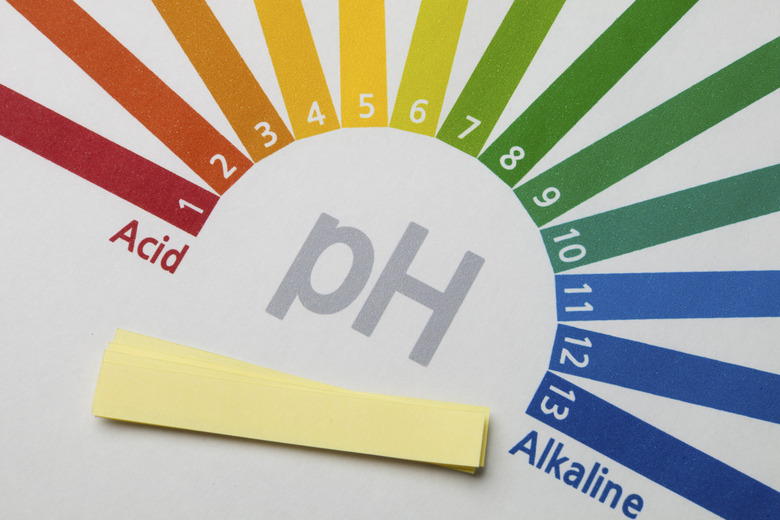How Does pH Level Affect Enzyme Activity?
Enzymes are protein-based compounds that facilitate specific chemical reactions in living organisms. Enzymes can also be used in medical and industrial contexts. Breadmaking, cheesemaking and beer brewing all depend on the activity on enzymes — and enzymes can be inhibited if their environment is too acidic or too basic.
How pH Affects Enzymes
How pH Affects Enzymes
A pH environment has a significant effect on an enzymes. It can affect the intramolecular forces and change the enzyme's shape — potentially to the point where it is rendered ineffective. With these effects in mind, typical enzymes have a pH range in which they perform optimally. For example, alpha amylase, which found in the mouth, operates most effectively near a neutral pH. However, lipases operate better at more basic pH levels. Buffer systems built into most organisms prevent pH levels from reaching the point where essential enzymes are rendered ineffective. If an enzyme is rendered ineffective by pH level, adjusting the pH can cause the enzyme to become effective again.
Cite This Article
MLA
Smith, Brett. "How Does pH Level Affect Enzyme Activity?" sciencing.com, https://www.sciencing.com/ph-level-affect-enzyme-activity-4962712/. 24 April 2017.
APA
Smith, Brett. (2017, April 24). How Does pH Level Affect Enzyme Activity?. sciencing.com. Retrieved from https://www.sciencing.com/ph-level-affect-enzyme-activity-4962712/
Chicago
Smith, Brett. How Does pH Level Affect Enzyme Activity? last modified March 24, 2022. https://www.sciencing.com/ph-level-affect-enzyme-activity-4962712/
